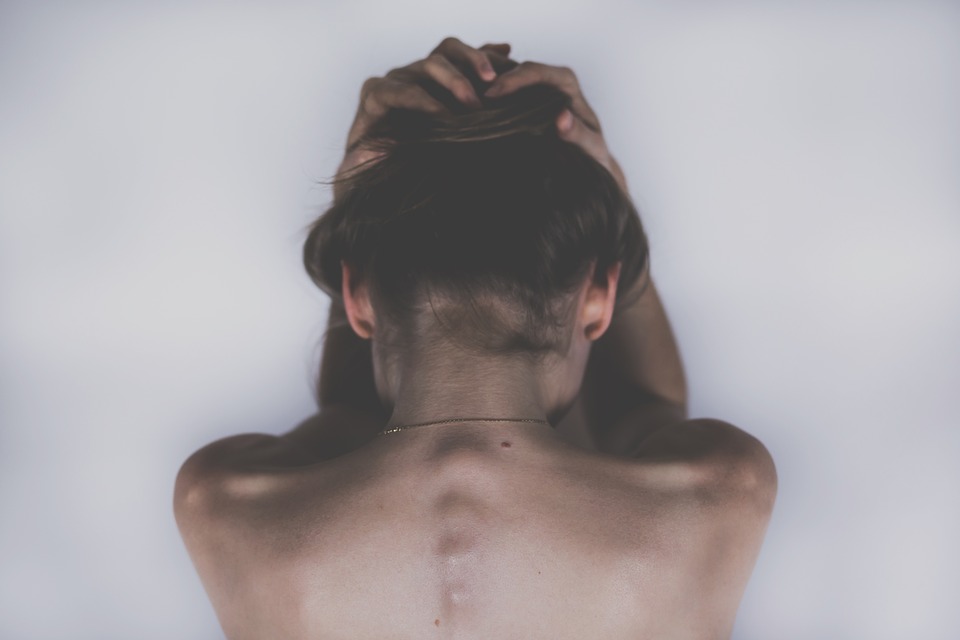
Body + Mind is reader-supported. We may earn an affiliate commission when you buy through some of the links on our site.
Moodiness. Cramps. Acne. Bloating. You already know the less-than-enjoyable side effects that come with your period. And most of the time, they’re tied to the hormonal shifts that happen as you make your way through your monthly cycle. Did you know that these shifts can cause lesser-known symptoms like nocturnal panic attacks too?
Surprisingly, a change in your hormones causes more than just the typical symptoms of PMS — or post-menstrual syndrome, if you have that too. Fluctuations in these numbers could also be the reason why you experience nightmares or even nocturnal panic attacks.
When your body realizes that the egg in your uterus hasn’t been fertilized and that you, therefore, are not pregnant, your hormone levels drop off significantly. This moment is typically what causes PMS, and it explains why you feel better in a few days — that’s when your estrogen and progesterone levels start to rise again post-period.
Some women experience intense pre-period dreams that align with this dip in hormones too, and doctors have explained why that’s so. For starters, you should understand why and when you dream during the night. The REM, or rapid eye movement, stage of your sleep cycle occurs about 90 minutes after you start snoozing. It’s not the deepest level of sleep you can reach, so your brain is still pretty active. Therefore, your mind creates dreams, some of which you might even remember once you wake up.
Interestingly, women who are PMSing spend less time REM-sleeping. The dip in progesterone that comes pre-period is to blame. This information might lead us to believe that hormonal changes help foster better sleep, but that’s not the case. First of all, your progesterone drop causes your body temperature to rise slightly, which can be a disruptor to your sleep.
Secondly, your pre-period dreams tend to draw from your day-to-day life. So even if you don’t have as many nighttime thoughts, you’re likely to remember them — or even to wake up from them — because they’re so true to what’s going on in reality. And if you wake up mid-dream, you’re more likely to remember it and wonder why it was so strange. The answer is, of course, your impending period.
Now these nightmares have another side effect — aside from being creepy, scary or silly. They also reduce the quality of your sleep if they keep you up all night long. To that end, your hormones have to do with PMS-related insomnia too.
PMS insomnia comes with a trio of uncomfortable side effects: extreme fatigue, irritability and a lack of concentration, which will obviously affect you at work. And once again, it’s all down to the hormones that cause not only bad dreams, but also hot flashes or sweating that can keep you awake as well. If all this happens to you monthly, have a trick up your sleeve for re-energizing in the morning without coffee — kombucha, chai and good old-fashioned water can do the trick too.
Nightmares and insomnia are bad enough, but some women experience an even worse side effect of their hormones amid the rest of their PMS symptoms. When women are awake, they’re highly susceptible to the anxiety that can cause waking panic attacks. With dipping levels of estrogen and progesterone, ladies can also experience nocturnal ones too.
Just as with a normal panic attack, your symptoms can be scary — you’ll feel like you can’t breathe, for one thing. You might also sweat, shake, hyperventilate or have a looming sense of doom, even if there’s nothing particularly wrong or bad happening. Panic attacks are scary whenever they happen and, if you have them often, you might want to seek medical attention — medications can help assuage the symptoms. But in general, a panic attack isn’t necessarily dangerous, no matter how uncomfortable it can make you feel.
You’re probably wondering how a change in hormones can cause you to panic. In general, a hormone imbalance can be the root of a panic attack of any kind. For example, an overabundance of stress hormones in your system can cause you to feel panic. Estrogen also has a link to panic attacks — when levels change, our bodies become hyper-sensitive, and we experience stress, which is a precursor to most panic attacks.
Imagine you’re asleep, but you’re having a too-real dream about your life thanks to the dip in progesterone levels. Your bad thought could trigger a stress response, which is sometimes the cause of a nighttime panic attack. It’s the perfect storm, and it’s all thanks to your period.
Thankfully, nocturnal panic attacks typically last only a few minutes. If they become unbearable, medication is an option, as previously mentioned. Some women have also had great success from therapy.
Your body’s hormonal ebb and flow is not something you can change. You can, however, soothe yourself into a restful sleep in the most serene way possible. Find what works for you — perhaps it’s nighttime reading, a hot bubble bath or a spritz of lavender essential oil. Whatever helps you relax, use it, and you might be able to side-step some of the poor sleep that’s so common at this time of the month.
Your email address will only be used to send you our newsletter, and at any time you may unsubscribe. For more information, see our Privacy Policy.